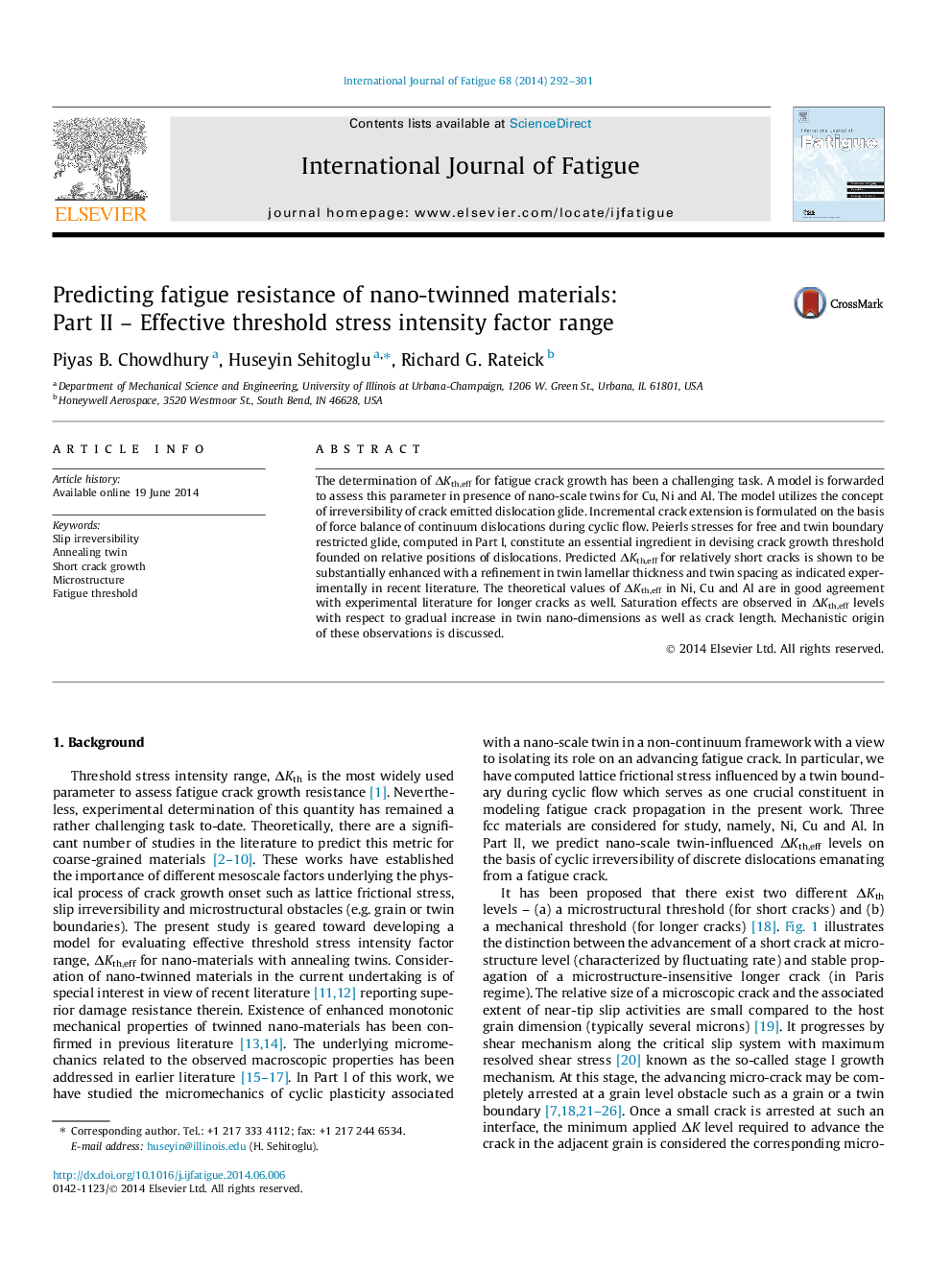| کد مقاله | کد نشریه | سال انتشار | مقاله انگلیسی | نسخه تمام متن |
|---|---|---|---|---|
| 775151 | 1463764 | 2014 | 10 صفحه PDF | دانلود رایگان |

• We model damage tolerance of fcc metals (Ni, Cu and Al) in presence of nano-twins.
• Irreversibility of crack-emitted slip determines cyclic crack extension.
• Degree of irreversibility in Ni, Cu and Al dictates their corresponding damage metrics.
• ΔKth,eff for short cracks are improved owing to refinement in twin nano-dimensions.
• ΔKth,eff levels for longer cracks remain unaffected by twins.
The determination of ΔKth,eff for fatigue crack growth has been a challenging task. A model is forwarded to assess this parameter in presence of nano-scale twins for Cu, Ni and Al. The model utilizes the concept of irreversibility of crack emitted dislocation glide. Incremental crack extension is formulated on the basis of force balance of continuum dislocations during cyclic flow. Peierls stresses for free and twin boundary restricted glide, computed in Part I, constitute an essential ingredient in devising crack growth threshold founded on relative positions of dislocations. Predicted ΔKth,eff for relatively short cracks is shown to be substantially enhanced with a refinement in twin lamellar thickness and twin spacing as indicated experimentally in recent literature. The theoretical values of ΔKth,eff in Ni, Cu and Al are in good agreement with experimental literature for longer cracks as well. Saturation effects are observed in ΔKth,eff levels with respect to gradual increase in twin nano-dimensions as well as crack length. Mechanistic origin of these observations is discussed.
Journal: International Journal of Fatigue - Volume 68, November 2014, Pages 292–301